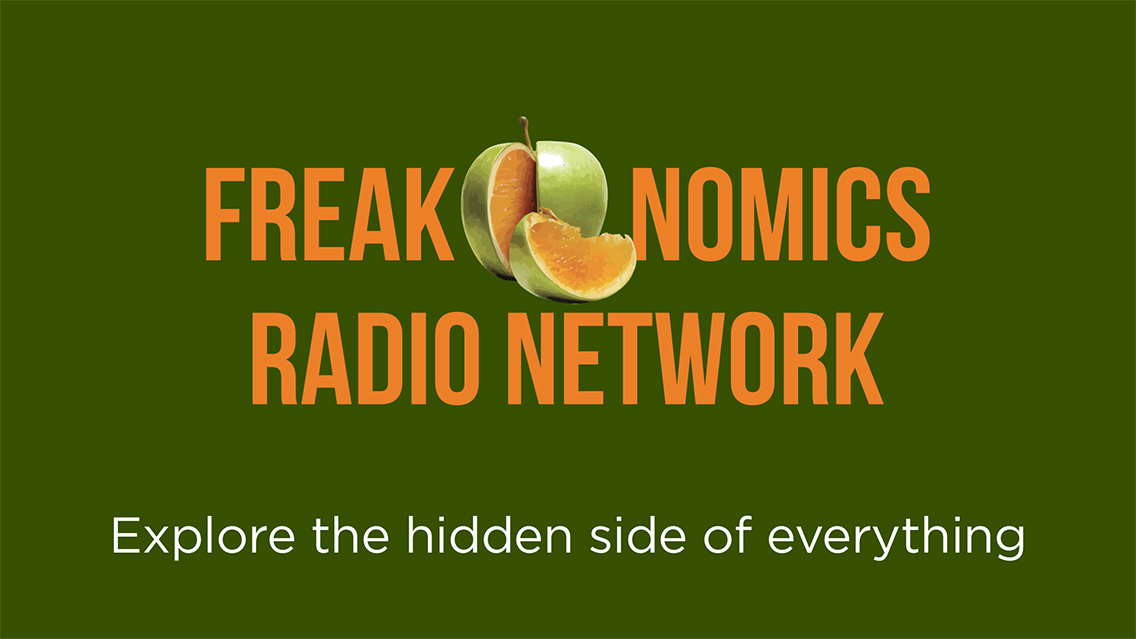Freakonomics radio
Freakonomics co-author Stephen J.
How did a nation of immigrants come to hate immigration? We start at the beginning, sort through the evidence, and explain why your grandfather was lying about Ellis Island. Part one of a three-part series. To get Plus episodes, become a member at Apple Podcasts or at freakonomics. Economists have discovered an odd phenomenon: many people who use social media even you, maybe? In ancient Rome, it was bread and circuses.
Freakonomics radio
Freakonomics co-author Stephen J. Dubner uncovers the hidden side of everything. Why is it safer to fly in an airplane than drive a car? How do we decide whom to marry? Why is the media so full of bad news? Also: things you never knew you wanted to know about wolves, bananas, pollution, search engines, and the quirks of human behavior. We also provide transcripts, show notes, and links to research for each episode. New episodes each week. Freakonomics co-author Steve Levitt tracks down other high achievers for surprising, revealing conversations about their lives and obsessions. How much is a suburban elm tree worth, and to whom?
The Sporkful.
Freakonomics Radio is an American public radio program and podcast network which discusses socioeconomic issues for a general audience. Journalist Stephen Dubner hosts the show, with economist Steven Levitt as a regular guest, both of whom co-wrote the book of the same name. Freakonomics Radio was created in September In November , the Freakonomics podcast looked at whether Google searches were getting worse. The episode featured former Google executive Marissa Mayer. In February , Freakonomics Radio Network announced a deal with YouTube to bring its podcasts to the video platform.
Send feedback. Freakonomics Radio. Freakonomics co-author Stephen J. Dubner uncovers the hidden side of everything. Why is it safer to fly in an airplane than drive a car? How do we decide whom to marry?
Freakonomics radio
Freakonomics co-author Stephen J. Dubner uncovers the hidden side of everything. Why is it safer to fly in an airplane than drive a car? How do we decide whom to marry? Why is the media so full of bad news? Also: things you never knew you wanted to know about wolves, bananas, pollution, search engines, and the quirks of human behavior. Join the Freakonomics Radio Plus membership program for weekly member-only episodes of Freakonomics Radio. To sign up, visit our show page on Apple Podcasts or go to freakonomics. How did a nation of immigrants come to hate immigration?
Gym in tinsukia
Follow this show Follow on Audible iTunes Spotify. How did racist city planners end up saving Black lives? Dubner and a stable of Freakonomics friends talk with the writers of mind-bending books, and we hear the best excerpts as well. Stuff You Should Know. This is one of my go to podcasts, I am always checking to see if there is a new episode. External podcast links? How did Girl Scout Cookies become a billion-dollar business? Part one of two-part series on academic fraud. Download as PDF Printable version. The Verge.
How did a nation of immigrants come to hate immigration? We start at the beginning, sort through the evidence, and explain why your grandfather was lying about Ellis Island.
Hidden Brain. Hidden categories: Articles with short description Short description is different from Wikidata Articles containing potentially dated statements from September All articles containing potentially dated statements Articles containing potentially dated statements from March Official website different in Wikidata and Wikipedia. Update Is Google Getting Worse? Learn more about how to listen. We talk to whistleblowers, reformers, and a co-author who got caught up in the chaos. We follow Richard Feynman out west, to explore his long and extremely fruitful second act. Also: why the major U. But a few reformers are gaining ground. Economists have discovered an odd phenomenon: many people who use social media even you, maybe? Why is the media so full of bad news? Economists have discovered an odd phenomenon: many people who use social media even you, maybe? Part two of a three-part series.


You are absolutely right. In it something is also to me it seems it is excellent idea. I agree with you.